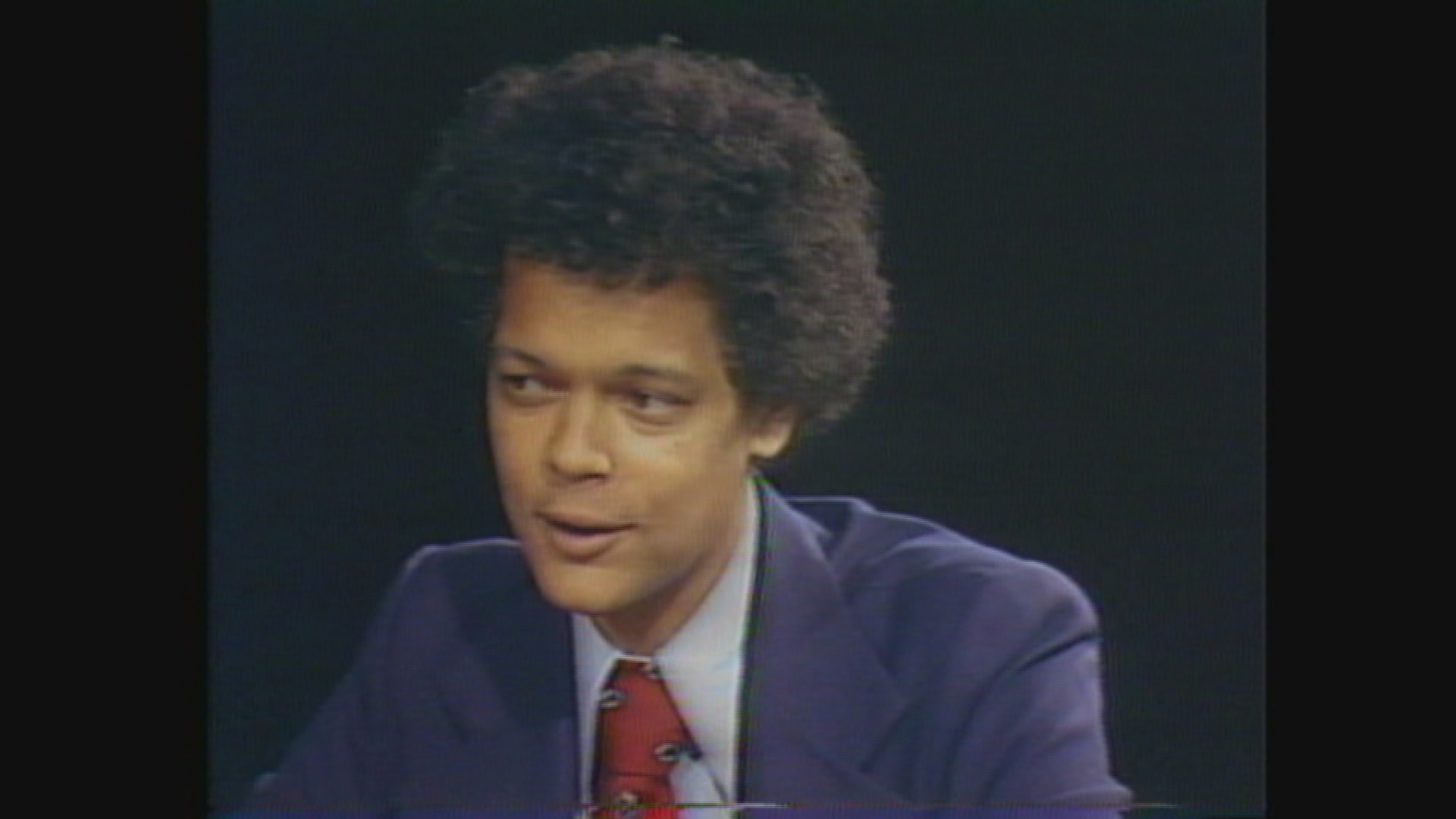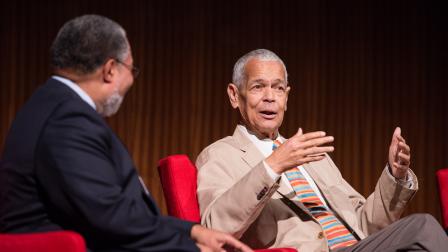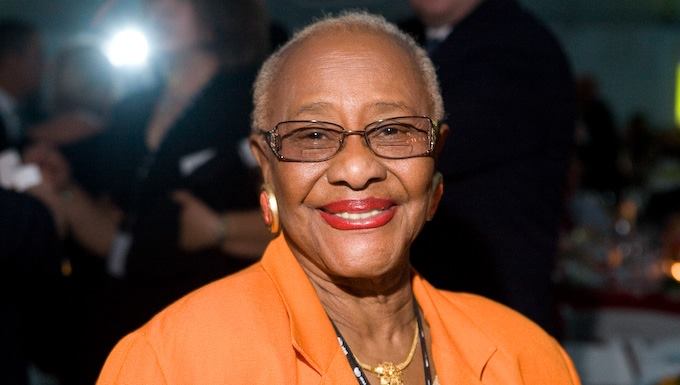Julian Bond, the civil rights activist, professor and politician, died Saturday in Fort Walton Beach, Fla., after a brief illness, according to the National Association for the Advancement of Colored People. He was 75 years old.
Bond on WTTW
Journalist John Callaway, the original host of Chicago Tonight, interviewed Bond on July 19, 1976 for the WTTW news show the Callaway-Ruddle Report. At the time, Bond was serving as a Georgia state senator and was just 36 years old.
In his introduction to the segment, Callaway looks back to his coverage of the 1968 Democratic National Convention, held in Chicago, and tells a story about entering a bar near Mayor Richard J. Daley's home at 35th Street and Lowe Avenue. He says, "I walked in, and there was a great deal of commotion at that time in the convention about this fellow Julian Bond." Bond had been nominated for Vice President of the United States at the DNC; he declined the nomination, citing his age – he was 28 years old – as the reason. (Candidates for that office must be at least 35 years old.)
 Julian Bond on the 'Callaway-Ruddle Report' on WTTW in 1976.
Julian Bond on the 'Callaway-Ruddle Report' on WTTW in 1976.
Nearly a decade later, Bond and Callaway sat down for an interview. (Watch the full interview, above.)
National politics is largely the focus of the conversation, particularly on Bond's mixed feelings toward then-Gov. Jimmy Carter, who at the time was running for president. Bond says, "I see the political process in this country as a series of declining options."
The topic of Chicago and Bond's perception of it as a "hostile" city is also explored during the interview. On this, Bond says that while he hasn't had a bad experience in Chicago, he just doesn't want to. He talks about a feeling of "great impatience" in Chicago.
Bond also says he hopes to see the next administration work on the issue of unemployment, particularly in the African-American community, and to address the problem of poverty in both cities and in rural America.
National outpouring of grief
Bond co-founded The Southern Poverty Law Center and served as its president from 1971-’79. In a statement released by the advocacy organization, Bond is described as a "visionary and tireless champion for civil and human rights."
 Julian Bond, right, discusses civil rights with Lonnie G. Burch at the LBJ Presidential Library. (LBJ Foundation / Flickr)
Julian Bond, right, discusses civil rights with Lonnie G. Burch at the LBJ Presidential Library. (LBJ Foundation / Flickr)
“With Julian's passing, the country has lost one of its most passionate and eloquent voices for the cause of justice. He advocated not just for African Americans, but for every group, indeed every person subject to oppression and discrimination, because he recognized the common humanity in us all,” the SPLC release states.
In the early 1960s, Bond helped to found the Student Nonviolent Coordinating Committee (SNCC) while enrolled at Morehouse College in Atlanta. "Bond was a master at speaking truth to power," Morehouse president John Silvanus Wilson, Jr. said in a statement on the school's website. "During a memorable visit to Morehouse, while I was a student in the '70s, he challenged us to go beyond seeking personal comfort in the world, and to live a life of service to others."
Addressing Bond's passing, President Barack Obama in a statement Sunday emphasized the activist's commitment to justice, in addition to his personal impact on Obama’s family.
“Julian Bond was a hero and, I’m privileged to say, a friend. Justice and equality was the mission that spanned his life – from his leadership of the Student Nonviolent Coordinating Committee, to his founding role with the Southern Poverty Law Center, to his pioneering service in the Georgia legislature and his steady hand at the helm of the NAACP. Michelle and I have benefited from his example, his counsel, and his friendship – and we offer our prayers and sympathies to his wife, Pamela, and his children.
Julian Bond helped change this country for the better. And what better way to be remembered than that.”
Bond was elected chairman of the NAACP in 1998, and continued to serve on its board.
“The nation and the NAACP deeply grieve Julian Bond's death even as we are profoundly grateful for his life,” NAACP President and CEO Cornell William Brooks said in a statement.
You may also like these stories:
 Willie Barrow
Willie Barrow
• Remembering Rev. Willie Barrow


